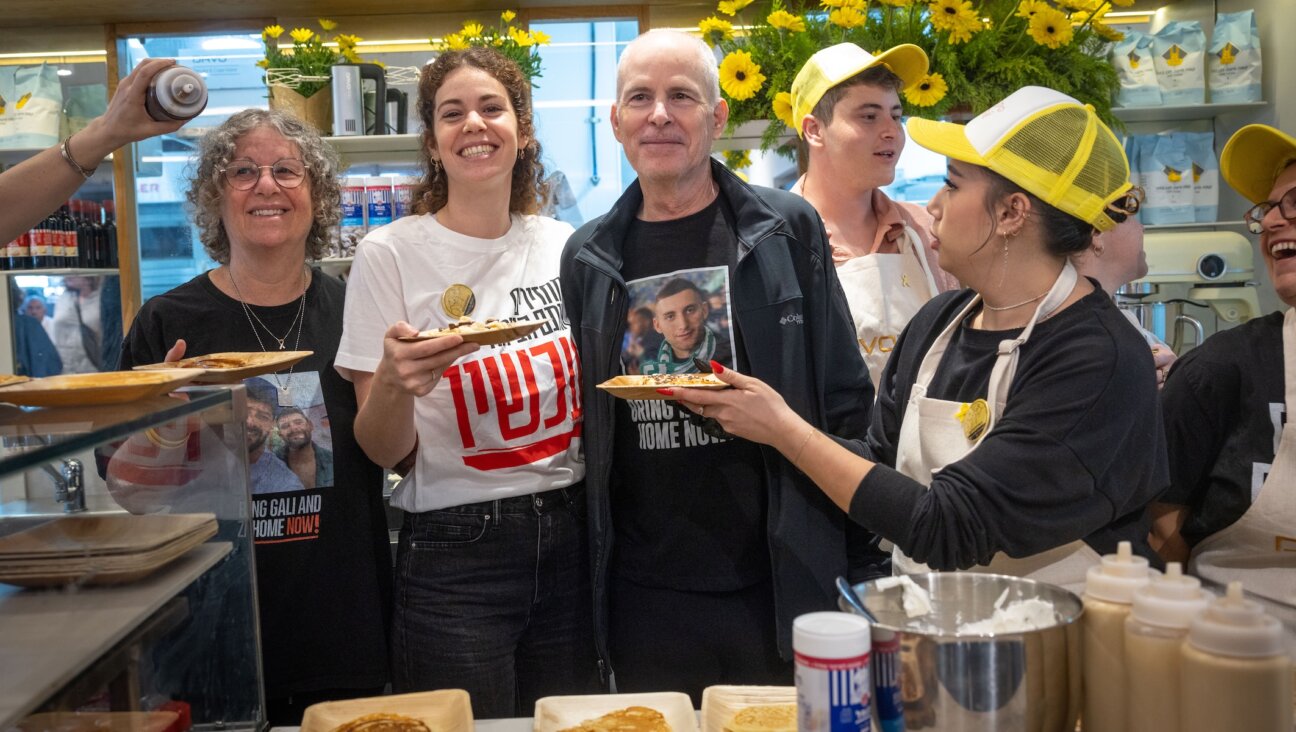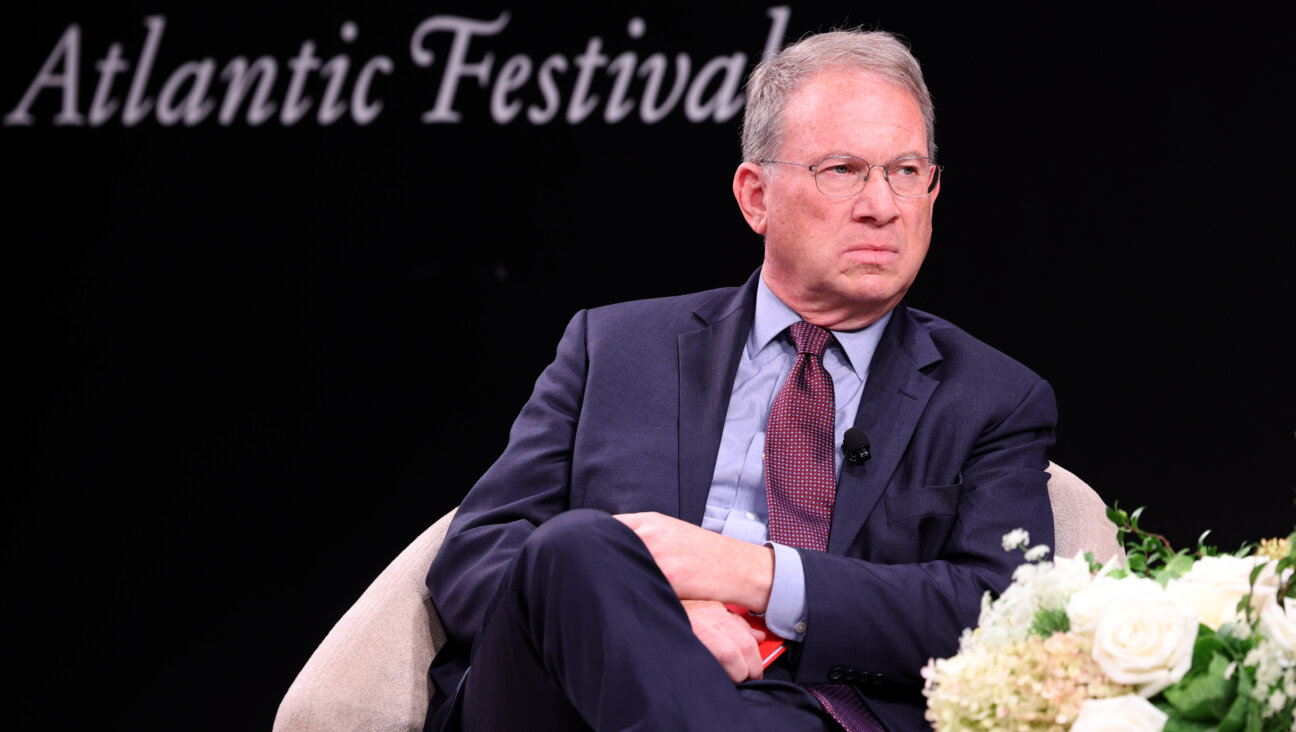For Liberals, Anger Trumps Abortion Issue In Senate Race
As Pennsylvania gears up for a bruising Senate race in 2006, Democratic activists are finding that the usual politics of abortion rights have been upended.
Both the incumbent senator, Rick Santorum, a Republican, and his likely Democratic challenger, State Treasurer Robert Casey Jr., are devout Catholics who oppose abortion.
Many liberal activists and political donors abandoned Santorum’s pro-life Democratic opponent in 2000, former congressman Ron Klink. But this time around — with the Senate about to blow up over the Democrats’ filibustering of seven of President Bush’s judicial nominees — partisan concerns are trumping many activists’ traditional pro-choice allegiances.
Some pro-choice lobbyists are angry at Democratic Governor Edward Rendell for having “pushed out” a pro-choice Senate candidate, Barbara Hafer. But many of the liberal, often Jewish activists who dominate Democratic politics in Southeast Pennsylvania appear to be setting aside their strong pro-choice stands to unite behind Casey, son of a popular former governor of the same name.
In Santorum, a two-term lawmaker who is the third-ranking Republican in the Senate and a strong proponent of “moral values” issues, Democrats see the opportunity to bring down the face of the state GOP and a leader of the national rise of religious conservatives. Santorum has taken the lead in opposing gay marriage and in calling for congressional intervention in the case of Terri Schiavo, and he is championing both Bush’s Social Security privatization plan and Republican efforts to prohibit filibusters of judges. He also is mentioned sometimes as a future presidential contender. Given his high profile, the national Republican and Democratic parties have identified the contest as the most important Senate race in the nation.
“It’s a chance for the Democrats to do what the Republicans did to [Tom] Daschle,” said a top Pennsylvania pollster, G. Terry Madonna, referring to the deposed Senate minority leader. “Santorum is the de facto leader of the Republican Party statewide.… Democrats have a visceral hostility to him that knows no bounds.”
The race promises to be a “dogfight,” Madonna said.
The active support for Casey by Jewish liberals, who are a cornerstone of Democratic fund raising, could play a key role in the race. Six years ago, many of these same activists failed to rally behind Klink, the anti-abortion politician whom the Democrats nominated to run against Santorum. By most accounts, Klink was a poor candidate with a limited, regional appeal. The activists neither worked hard nor opened their wallets for him, depriving the candidate of crucial support in Philadelphia and its suburbs. Klink failed to rack up a big margin in those areas, which any Democrat needs to offset GOP strength in the state’s center. He lost to the incumbent Santorum, 52.4% to 45.5%, even as Vice President Al Gore beat Bush in the state, 51% to 46%. Democratic activists sound determined never to allow that to happen again.
“I think this is the most important election in my lifetime,” said Romayne Sachs, a longtime Montgomery County Democratic and pro-choice activist. “I’m going to work as hard as I can for Bob Casey, even though he’s not for a lot of things I am for.”
Lenore Burson, a veteran liberal activist in Philadelphia, said: “Everyone on the Democratic side is very much aware of Santorum’s record and identification with Bush. There’s a tremendous hostility to Santorum and Bush.”
Still, Burson added, Casey’s record on a range of issues is enough to evoke warm feelings from Democrats. “I think I can vote for him on the merits,” Burson said. “He has been a leader on traditional Democratic economic issues. Lots of people have worked with him on schools, prisons and the environment.”
The race, even in its early stages, has provided some surprises: A recent Quinnippiac University poll put Casey ahead of the incumbent Santorum, 49% to 35%.
“Senator Santorum has hurt himself in the last couple of months by being the poster boy for the president’s Social Security program and being the only member of Congress to show up at Terri Schiavo’s hospice, which sent a message that voters in Pennsylvania didn’t respond to,” Casey campaign manager Jay Reiff said.
The contest also is likely to pit the state’s two Jewish political titans — old friends Rendell and senior Senator Arlen Specter, a Republican — against each other. Specter beat back a ferocious primary challenge in 2004 with Santorum’s help; Rendell aided his old chum, Specter, by not pulling out the stops for his Democratic challenger, Rep. Joe Hoeffel. But, pollster Madonna said, “Rendell will help Casey in ways that he would not help Hoeffel,” because “he’s not personally close to Santorum.”
The organized Jewish community, usually a liberal stalwart, is likely to stay out of the fray, given Santorum’s substantial support for its charitable activities and for Israel. Pro-Israel activists, for their part, are gearing up to raise substantial sums for Santorum. “He’s been in the leadership on our issue,” said Dr. Ben Chouake, president of Norpac, a non-partisan, New Jersey-based political action committee that supports pro-Israel candidates. Norpac is planning two fund raisers for Santorum in the coming months that Chouake expects will raise $75,000 to $100,000.
Even so, Casey will make a bid for pro-Israel attention. “He has proclaimed his interest in being just as strong for the U.S.-Israel relationship as Santorum is,” said Betsy Sheerr, a Casey supporter and longtime Jewish communal activist who served as president of the Joint Action Committee for Political Affairs, a pro-Israel, pro-choice political action committee. “He knows a bit about this issue and is definitely interested in being a champion.”
Sheerr added: “Casey is not interested in being an extremist and imposing his views on others, as Santorum is. That’s an important issue for the Jewish community. Casey would not stack the court and undermine the judicial system that has protected minorities for so long.”
National Democrats also said that they intend to paint Santorum as religiously and culturally out of the mainstream on church-state separation issues. Polls have repeatedly found that Jews are far more liberal on such matters than the rest of the American public, and certainly far to the left of Santorum.
“Santorum is the Tom DeLay of the U.S. Senate,” said Ira Forman, executive director of the National Jewish Democratic Council, referring to the evangelical Christian majority leader who frequently lambastes the federal judiciary. “How is he going to appeal to Jews when he questions evolution and advocates for prayer in public schools?”
Santorum’s media consultant, John Brabender, blasted Santorum’s critics for not being true to their values. “These are Democratic activists willing to put aside their faith and beliefs to defeat a Republican senator rather than looking to the actual issues,” he said. Brabender noted that Santorum is an author, with Senator John Kerry of Massachusetts, of legislation guaranteeing religious freedom in the workplace, which showed his commitment to “the right of people to express their beliefs.” He countered that it is the Democrats who are “extremists” for demanding a “litmus test” of Bush’s judicial nominees. He also tried to soften Santorum’s anti-abortion image, saying that the lawmaker “has voted for pro-life legislation that includes exceptions for rape or incest.”
The Forward is free to read, but it isn’t free to produce

I hope you appreciated this article. Before you go, I’d like to ask you to please support the Forward.
At a time when other newsrooms are closing or cutting back, the Forward has removed its paywall and invested additional resources to report on the ground from Israel and around the U.S. on the impact of the war, rising antisemitism and polarized discourse.
Readers like you make it all possible. We’ve started our Passover Fundraising Drive, and we need 1,800 readers like you to step up to support the Forward by April 21. Members of the Forward board are even matching the first 1,000 gifts, up to $70,000.
This is a great time to support independent Jewish journalism, because every dollar goes twice as far.
— Rachel Fishman Feddersen, Publisher and CEO
2X match on all Passover gifts!
Most Popular
- 1

Film & TV What Gal Gadot has said about the Israeli-Palestinian conflict
- 2

News A Jewish Republican and Muslim Democrat are suddenly in a tight race for a special seat in Congress
- 3

Culture How two Jewish names — Kohen and Mira — are dividing red and blue states
- 4
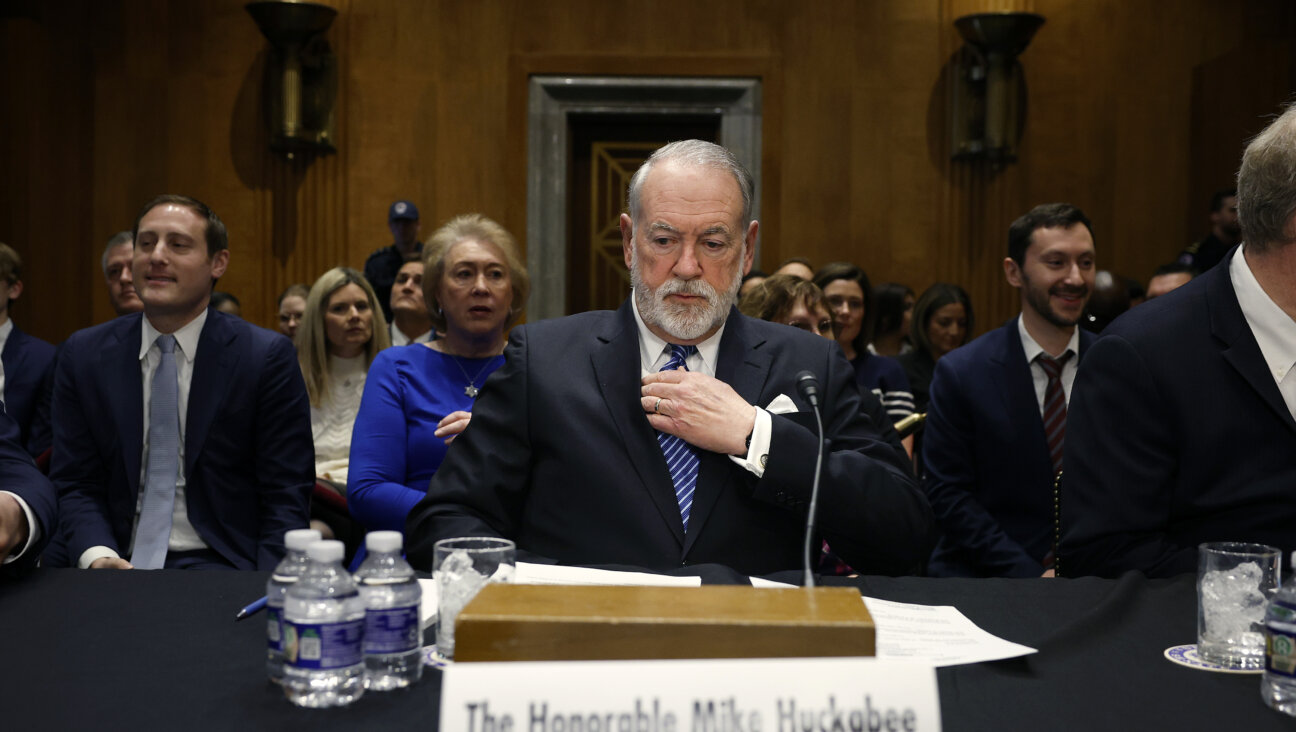
Opinion Mike Huckabee said there’s ‘no such thing as a Palestinian.’ It’s worth thinking about what that means
In Case You Missed It
-

Fast Forward The NCAA men’s Final Four has 3 Jewish coaches
-
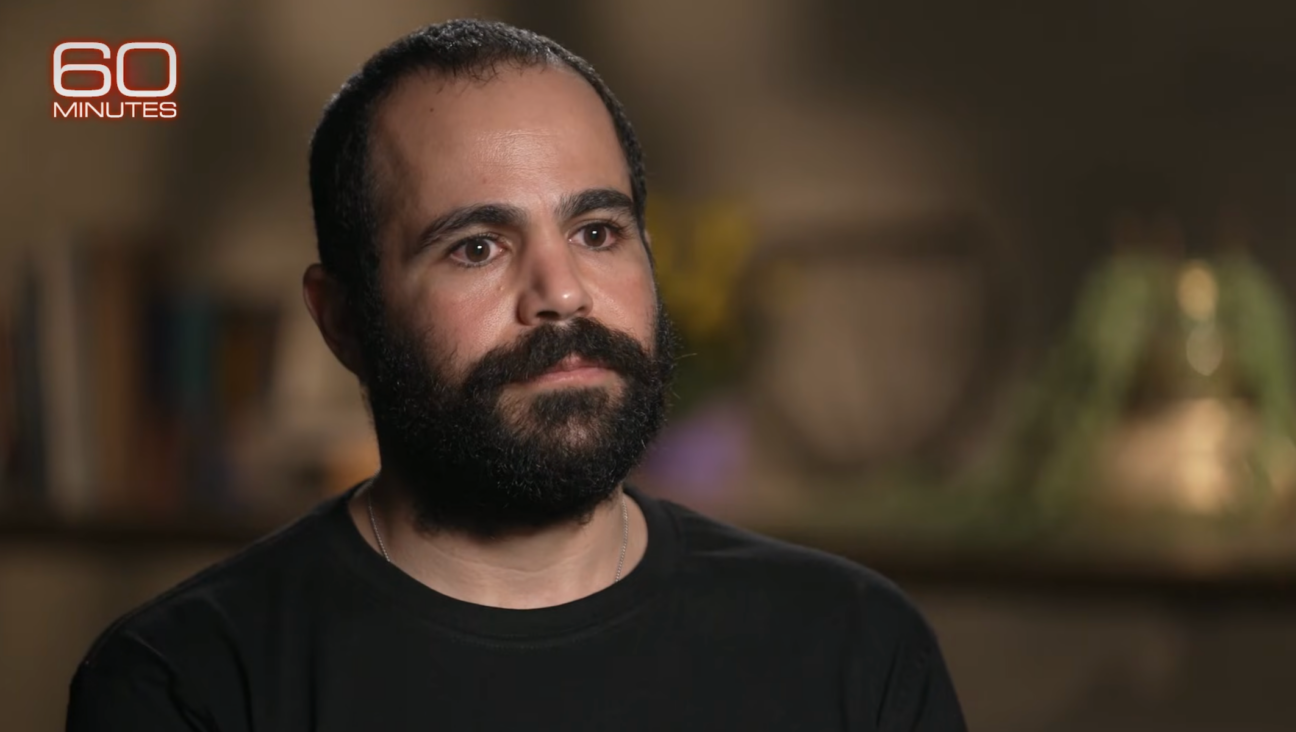
Fast Forward Yarden Bibas says ‘I am here because of Trump’ and pleads with him to stop the Gaza war
-
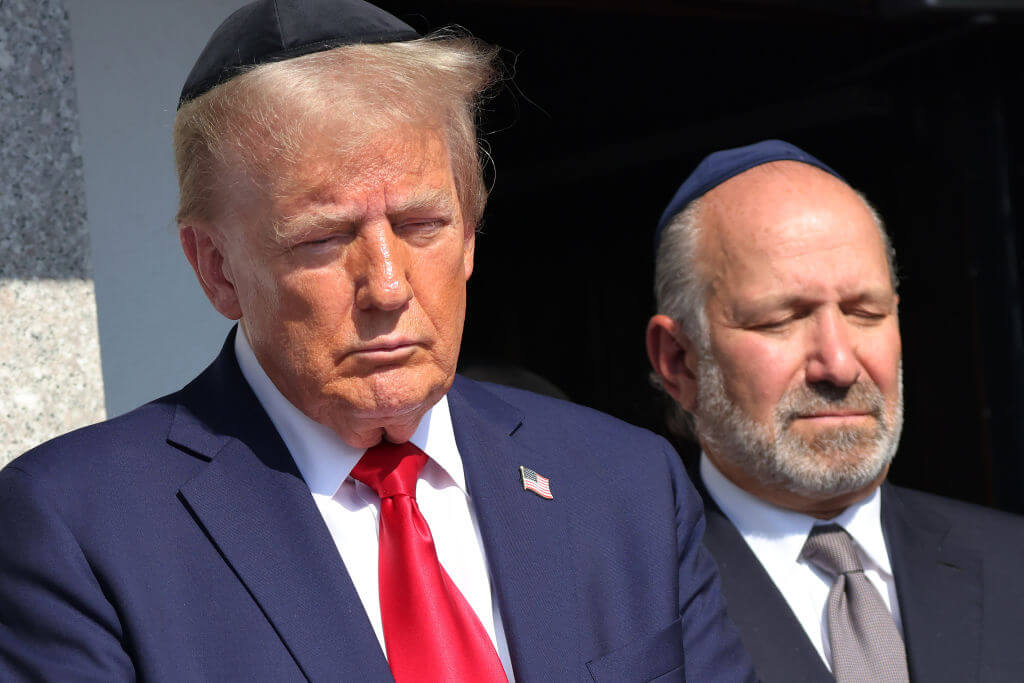
Fast Forward Trump’s plan to enlist Elon Musk began at Lubavitcher Rebbe’s grave
-

Film & TV In this Jewish family, everybody needs therapy — especially the therapists themselves
-
Shop the Forward Store
100% of profits support our journalism
Republish This Story
Please read before republishing
We’re happy to make this story available to republish for free, unless it originated with JTA, Haaretz or another publication (as indicated on the article) and as long as you follow our guidelines.
You must comply with the following:
- Credit the Forward
- Retain our pixel
- Preserve our canonical link in Google search
- Add a noindex tag in Google search
See our full guidelines for more information, and this guide for detail about canonical URLs.
To republish, copy the HTML by clicking on the yellow button to the right; it includes our tracking pixel, all paragraph styles and hyperlinks, the author byline and credit to the Forward. It does not include images; to avoid copyright violations, you must add them manually, following our guidelines. Please email us at [email protected], subject line “republish,” with any questions or to let us know what stories you’re picking up.








